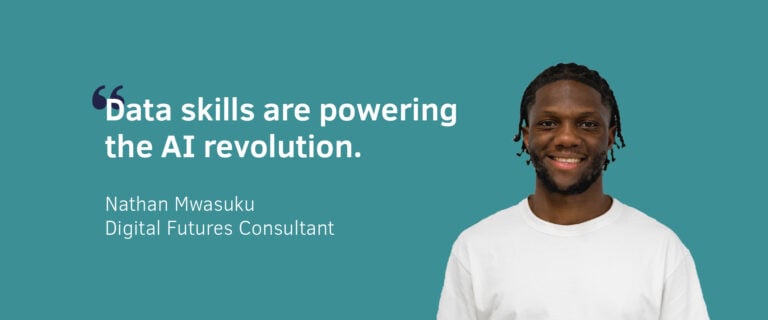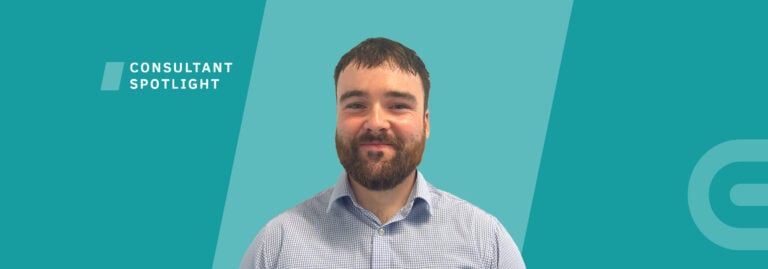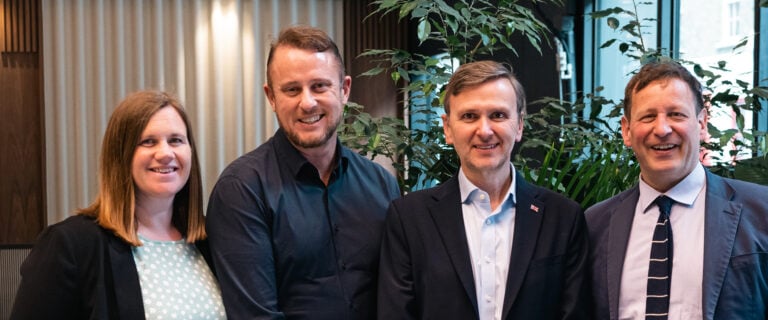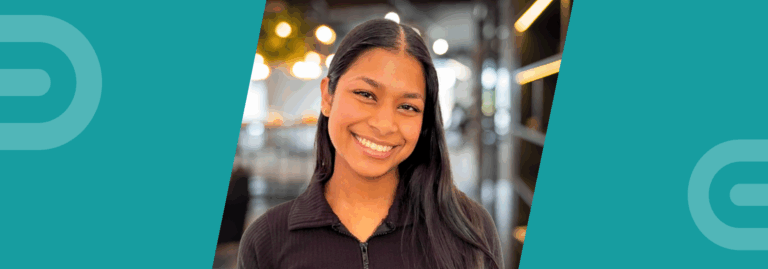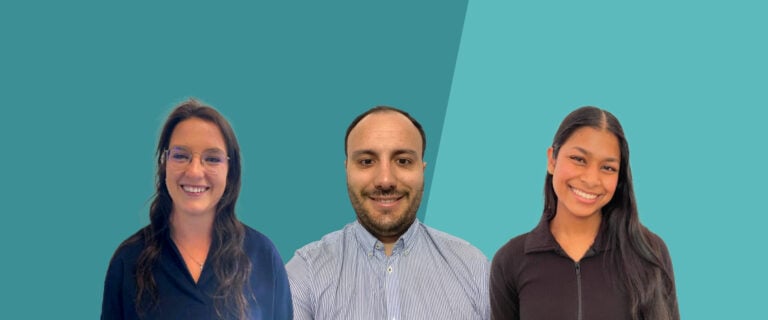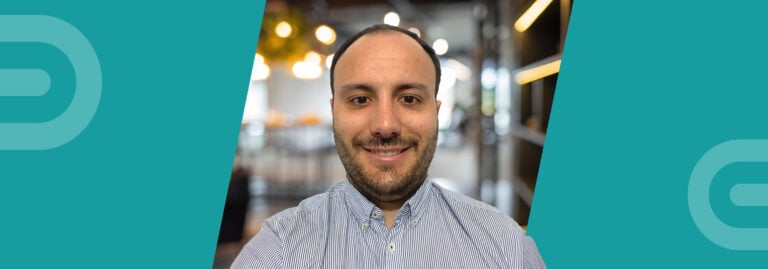We spoke to Clara, who following completing our software engineering pathway, was deployed as a Network Engineer with one of our clients.
What you were doing before thinking about a career in technology?
I went to university and studied to become a translator and interpreter, and worked as a freelance linguist for a few years. Languages have always been a passion of mine, but, for a couple of reasons, I started to realise that translation wasn’t what I wanted to be doing for the rest of my life. The industry is changing a lot, particularly with developments in AI, and I was also finding freelancing very isolating – it’s just not the same as being part of a team.
When did technology become something of interest to you?
Like many people, the 2020 lockdown meant I had a lot of free time! I was trying to find new ways to fill my time and ended up picking up a little book on HTML and CSS. But the real turning point was a couple of years later, I got seriously ill at the beginning of 2022 and the doctors had me off exercise for about 6 months, I am a super active person so I was really struggling with that. I was very tired and sore, so I picked up Python more seriously as a way to keep my mind engaged. Soon I was creating little Django applications and knew I wanted to do this for a living.
At what point did you think about tech as a career?
About halfway through my self-study, I was building my first end-to-end application. That was when the magic really clicked for me. Seeing everything work was amazing. At this point I was still working as a translator and also in childcare to make some extra money, but once I fully recovered from my surgery I focused on saving up so that I could leave my day job and turn my whole focus to making software development my career.
Did you hit any barriers in that job search?
Absolutely! It was so much harder than I thought it was going to be. My partner works in tech and we were convinced that based on the applications I’d built in such a short space of time I’d be able to get a job within 3 months.
Before I found Digital Futures, I had applied for about 400 jobs (I did keep a list!) and didn’t hear back from most of them.
And what was it about Digital Futures that made you apply?
By this point, I had realised that I didn’t have the tech industry mindset yet. I was confident in my Python skills but I needed a lot of help when it came to communicating that knowledge and potential. I needed to learn from people who knew what they were doing, and the idea of community has always appealed to me. I thought Digital Futures would provide somewhere stable to guide me through changing careers.
How did you feel about starting the Academy?
I was really excited. There was only 3 weeks between my interview and the start of the Academy. I’d been unemployed for 5 months at that point and I was excited to work with others and expand my skills. The Academy was hard but I loved it so much – it was amazing to learn and grow with my peers.
What role are you in now? How did the Academy help you prepare?
I’m working as a Network Engineer at one of Digital Futures clients, a multinational media and telecoms company. Up until the Academy and the placement process, I didn’t even know network engineering was a possibility for me. I’ve always leaned towards the back-end of software development, so when Digital Futures presented the opportunity I was really excited about it. It’s been great to learn to work in a side of the industry that I’d never heard about before. At this point, I’m 3 months into my deployment and I’m starting to know what I’m doing with the help of my team and the Digital Futures team.
I’m not working with the exact technical aspects that I gained from the Academy, rather using my previous Python knowledge, plus a lot of the skills I learnt there. Things as simple as working with deadlines, collaborating with other engineers, working in Scrum, or being able to talk about complex technical concepts have made the transition into a full time tech role so much smoother!
One of the great things about software development is that what you learn today will help you in the future. The technical thinking I learned in the Academy is invaluable and will help me throughout my career.
What has stood out about the role you’re deployed into so far?
After looking for a role for so long, I was a bit worried about landing in a new career that I wouldn’t end up liking. So, I love that my placement has provided me with the proof I needed that this career is right for me. Working in a role that you don’t have a formal background in can be hard, but the Digital Futures team and my colleagues at the office have been amazing – I couldn’t have done it without them.
When I was growing up, I loved languages and the humanities, and I excelled in academics. But if I struggled with the more scientific subjects, people told me not to worry too much about it as most girls were just not very good at STEM. It’s great to be able to work towards proving outdated ideas wrong.
How have you found being part of such a large, multinational organisation?
It dawned on me a few weeks ago how remarkable it is when I joined the annual meeting – there were around 70,000 people on the call! That’s the population of my hometown growing up! That felt surreal.
On a day-to-day basis, it’s been really great – I get to work with lots of people in London but also internationally. Having the team of Digital Futures engineers to welcome me into the role has been really helpful as well, I think we’ve been able to build a real sense of community amongst us.
How has Digital Futures supported you as you’ve transitioned into your role?
Having Sydney, my Delivery Manager, by my side has really helped me settle in and navigate the organisation. Delivery Managers at Digital Futures make all the difference. I haven’t faced a problem where I didn’t have someone to talk to and help me. From upskilling to onboarding – anytime I was feeling a bit nervous or shaky, I’d just pop Sydney a message and she’d be there to help. For any programming issues, I can really lean on my Digital Futures colleagues on client site. I just put a message in the group chat and we’re usually on a call working through the solution within about 10 minutes.
Starting something new can be scary, but at Digital Futures, there’s always someone there to support you.

